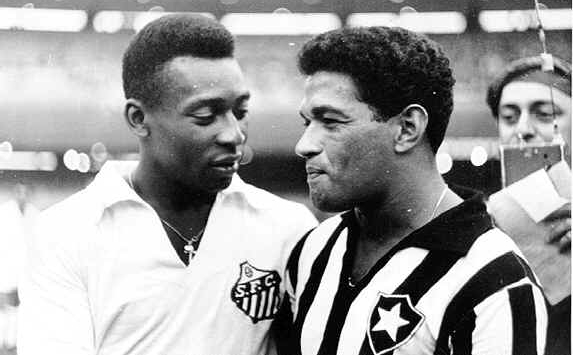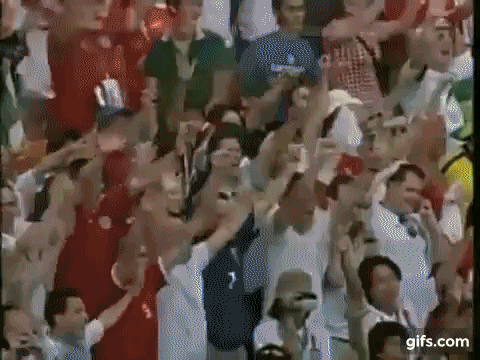Edgar Allan Pillow
Ero-Sennin


........................... TEAM ONENIL .................................................................................. TEAM TUPPET .............................................
TEAM ONENIL
4231 England
Without much competition this England side selected itself. The core of the side is of course England’s 1966 World Cup winning side but with added heroes like Stanley Matthews and Duncan Edwards. While the 4231 is relatively new it was the best formation to get my best players on the pitch in their natural positions. Charlton played at the tip of Ramsey’s diamond 442 in ‘66 and that is essentially his same role here. He is just now surrounded by even better players than he was then. I considered other formations but getting Finney-Greaves-Matthews on the pitch was essential.
Matthews and Finney are two of the greatest wingers of all time, epitomizing the complete classic winger profile. Both were masters of dribbling and crossing yet they both boast impressive scoring records for wide forwards. Matthews is famous for playing professionally until he was almost 50 , a true early 20th century prototype for the professional athletes of today. Finney was the legend of Preston North End. While Matthews was truly the epitome of the classic winger, Finney was the prototype of modern wide forwards playing all across the front line with equal skill and panache.
Interesting when I was watching interviews of both of these how much FA Cup mattered to them. The FA Cup was like the peak trophy for them even more than the league. And this is before anyone even thought about a ‘Champions League’. These are two of England classiest players who would shine and excel in any era. They both had remarkable ball control, especially considering the heavy ball and the fact the defenders of this era kicked them like mad.
Greaves gets the nod here at CF. His goal scoring record is just phenomenal, leading all top 5 leagues. And we must not forget he did that playing for a poor side (Spurs haha). But seriously Greaves is just an impressive goal scorer. He gets the nod here because he presents a greater mismatch for Lucio. Lucio matches up better against Shearer than he does Greaves’ pace and runs.
Sir Bobby Charlton should need no introduction. This man was just a legend. From surviving the Munich crash to becoming a symbol England’s willpower, Charlton is the playmaker here and given a lot of freedom. Like in the WC when Alf asked him to play centrally that is what is required of him here. With the amount of quality around him Charlton might as well be playing in heaven.
The full backs are boring but effective choices. I originally was going to go full old school here. But then I changed my mind and regret it as Ashley Cole and Gary Neville feature a lot around here while my original two choices might not have even been selected.
Still the modern two fit perfect with the tactic even if they aren’t hipster choices. It’s just as well as I know from the Americas draft, Garrincha is just unstoppable against even top fullbacks. So Ashley Cole is as good a choice as any. He has the strength, speed and arseholiness to give Garrincha a hard time and not make it easy on the bent-knees angel. Plus Cole can contribute to the attacks while Garrincha won’t be tracking back. I do believe that all around Cashley poses more trouble for Garrincha both ways than Branco will for Tom Finney.
The heart of my side is the two centre-backs and midfielders. Bobby Moore and Rio Ferdinand are England best two CBs and they are both complete footballers.With Duncan Edwards as the pinnacle of a destroyer+ type of holding mid, Moore and Ferdinand present a unflappable line of defense. Pele, our opponent, even called Bobby Moore the best defender he ever played against. And now the Brazilians have Duncan Edwards in front. Bryan Robson as the box to box is the perfect complement for Edwards and the playmaker Charlton. This team defense overflows with grit and verve but also possesses tremendous class on the ball. Robson-Edwards in front of Moore-Ferdinand is going to be a problem for even the best Brazilian attackers.
Gordan Banks completes the side. Was a tough choice here as I really like Peter Shilton but Banks won a World Cup.
TEAM TUPPET
Tactic:
We are playing in a lopsided 4-2-3-1 formation.
- Garrincha’s more adventurous / less defensively reliable style of play is balanced on the other side by a much more hard working Rivellino. Rivellino has the same important role of 1970 team, without the ball he would be defending on the left side, while moving in the central midfield areas with the ball. Garrincha is just going to do his thing, most of our game is going to flow through him & Zico at the right side.
- Branco would be the more attacking fullback, providing overlaps to Rivelino and using his great left peg for crosses to Pele. Djalma on the other end is going to remain defensive, leaving the right side of the pitch completely to Garrincha. Both are world cup winners and have provided reliable defensive displays against some of the best wingers when needed.
- Gerson is the primary playmaker of the team from deep, partnered by probably the best brazilian midfield enforcer in Zito he would look to provide a defensive shield in front of Periera/Lucio partnership at central defense. Gerson would probably get underrated as he often does especially against B2B physical players, but he is rated as one of the finest playmaker/midfielder ever and did play against some great European midfielders and usually came out on top.
- Periera/Lucio is a complimentary stopper/ball playing defender partnership. Covered by the greatest Brazilian goalkeeper and two time world cup winner Gilmar.
- Zico is attacking midfielder while Pele is playing as striker, both would interchange from time to time, and share the goal scoring burden. Bred in the same Joga Bonito style of play I think they would thrive with each other.
- Finally, we are playing in the Brazilian style of technique and flair and would look to dominate the ball. In the same vein as well, I don’t expect us to keep onenil’s formidable team at bay, and our hope is firmly on the shoulder of our front 5 to outscore the opposition. I do have a fantastic front 4 that reads as Football’s who’s who and a case could be made for them to the Top 4 Brazilian players ever. So yeah hope is that they would show up and get us over the line.



